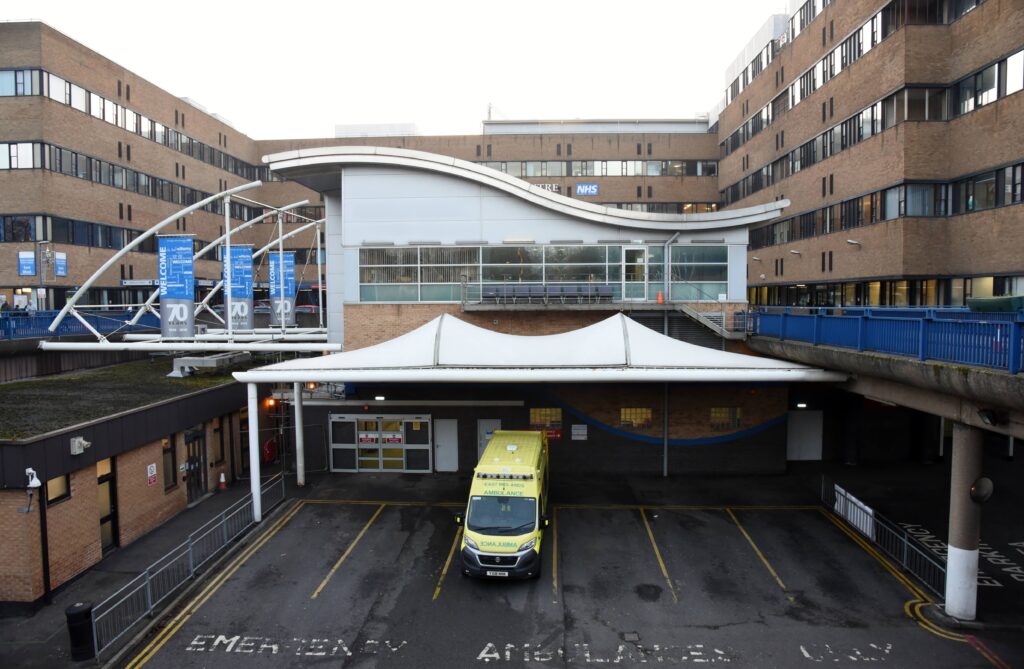On December 10 a new £600m investment into NHS hospitals across England, apparently aimed at “upgrading and refurbishing” hospital sites, was announced by Health Secretary Matt Hancock.
It will be welcomed by the recipient trusts, but it’s not new money. It forms part of the £1.5bn capital funding announced by Boris Johnson over the summer to help the NHS ‘build back better’.
But the latest announcement does not represent any big vision. The money is to be spent quickly – by the end of March. The list of almost 1,800 projects across 178 trusts projects (averaging £3.4m) is a series of mainly small, overdue projects to attend to long-standing under-funding of maintenance and new equipment.
A few of the larger projects to be covered by the new cash are:
· £15.9 million for a new critical care centre at Northampton General Hospital
· £3.3 million to Croydon Health Services NHS Trust for a new paediatric integrated unit
· £6.5 million for the construction of a new MRI building at St George’s Hospital in London to house a new scanner
· £2.7 million to refurbish Firth Theatres at the Northern General Hospital, which includes critical care, cardiovascular surgery and other surgical wards
However many of the projects being funded are vanishingly small. South West Yorkshire Partnership NHS Foundation Trust has been allocated just £4,000 for one project, East Midlands Ambulance Service £7,000 and Bradford District Care NHS Foundation Trust £10,000.
While it’s better to receive something than nothing at all, most people would expect trusts to be able to afford such minor sums to cover most of the projects on the long list from routine funding: the fact that these need extra allocations is a grim reminder of the impact of a tough decade of frozen real terms NHS funding (and real terms reductions in capital spending) since David Cameron’s government took over in 2010.
Many financially-strapped trusts have raided capital budgets to help cover revenue deficits. The “extra” £600m is just one-tenth of the latest (2018-19) estimate of the total backlog maintenance bill. Back in August 2019, NHS Providers argued: “The NHS’ annual capital budget is now less than its £6bn backlog maintenance bill (which is growing by 10% a year), meaning that issues like leaking roofs and broken boilers, ligature points in mental health facilities and outdated technology cannot be fully addressed – even before any investment can be made in new buildings and services. Per head of population, we have fewer CT scanners than
Slovenia, the Russian Federation, Turkey, and the Czech and Slovak Republics, and less than half the number you will find in Latvia, Greece and Iceland.”
The latest “steep rise” in capital spending to £9.4bn still does not bring even this one year’s spending up to the OECD average, and spending is set to fall again in real terms next year.
Meanwhile, the extra capital costs of adapting NHS hospitals to incorporate social distancing and infection controls post-Covid have still not been addressed, leaving thousands of beds unoccupied and NHS capacity severely reduced from a year ago as we go into another winter of increased demand and the threat of a third wave of Covid.
In other words, ministers are still following the same familiar line of deliberately under-funding the NHS while hugely exaggerating the scale and impact of any short-term increases in allocation.
Dear Reader,
If you like our content please support our campaigning journalism to protect health care for all.
Our goal is to inform people, hold our politicians to account and help to build change through evidence based ideas.
Everyone should have access to comprehensive healthcare, but our NHS needs support. You can help us to continue to counter bad policy, battle neglect of the NHS and correct dangerous mis-infomation.
Supporters of the NHS are crucial in sustaining our health service and with your help we will be able to engage more people in securing its future.
Please donate to help support our campaigning NHS research and journalism.


